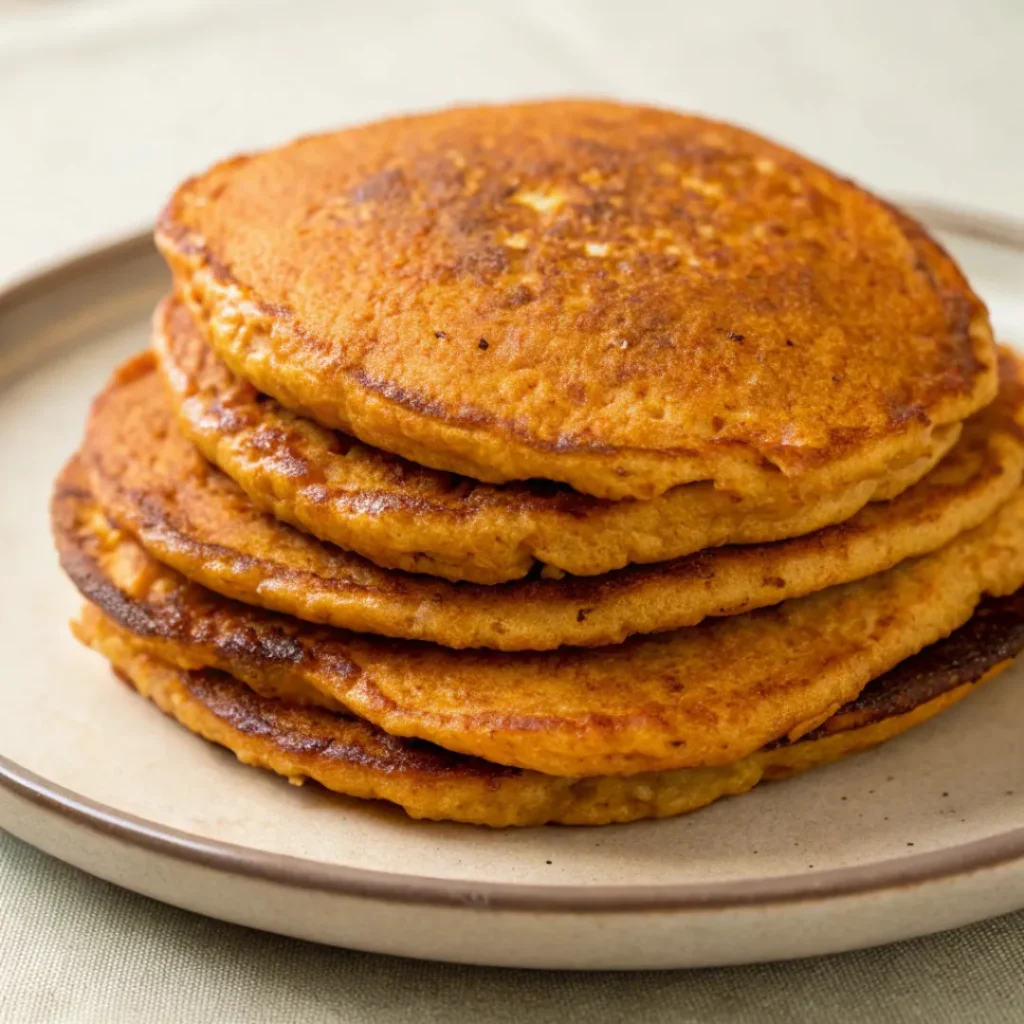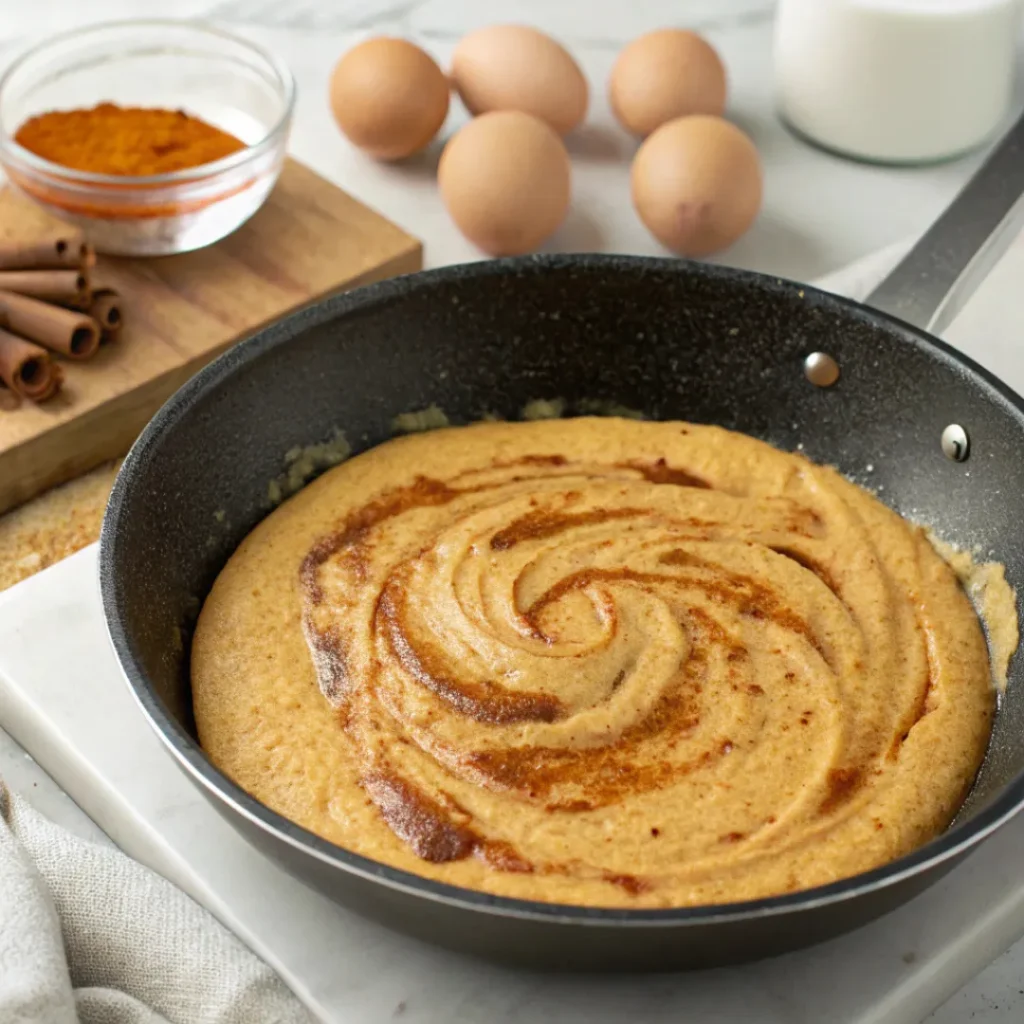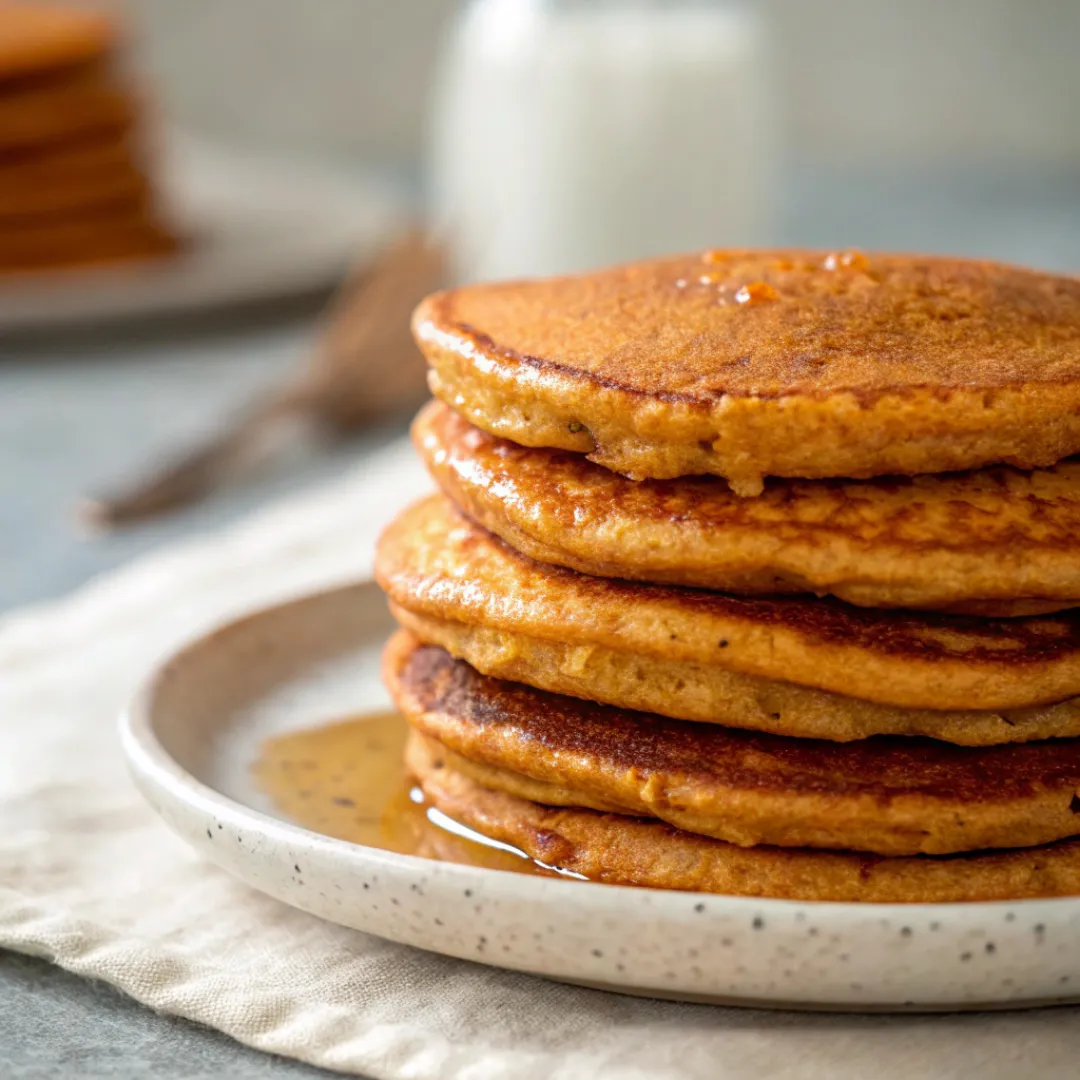Sweet potato pancakes are a delicious, nutrient-dense alternative to traditional pancakes, often favored for their natural sweetness and added vitamins. But for those mindful of their carbohydrate intake, understanding how many carbs are in sweet potato pancakes is essential. Whether you’re managing a low-carb diet, counting carbs for health reasons, or just curious about the nutritional profile of sweet potato pancakes, this guide will provide a complete breakdown.
In this article, we’ll explore how many carbs are typically found in sweet potato pancakes, factors that affect the carb count, ways to make lower-carb versions, and tips on balancing them in a healthy diet.
Carbohydrate Content in Sweet Potato Pancakes
The carb content in sweet potato pancakes can vary significantly depending on the recipe and serving size. Here’s a general overview of the carbohydrate content in a typical serving:
Homemade Sweet Potato Pancakes
A standard homemade sweet potato pancake recipe typically includes mashed sweet potatoes, flour, eggs, and milk. In general, one medium sweet potato (about 150 grams) contains around 26 grams of carbohydrates. Combined with flour and other ingredients, each pancake can contain approximately 15-20 grams of carbs.
- Average Carb Count: 15-20 grams per pancake
- Serving Size: Approximately 2-3 pancakes (30-60 grams of carbs)

Store-Bought or Pre-Made Sweet Potato Pancakes
Store-bought sweet potato pancakes may have added sugar, preservatives, and flour blends, which can increase the carb content. Always check the nutrition label, but on average:
- Average Carb Count: 20-25 grams per pancake
- Serving Size: Typically 1 pancake per serving (20-25 grams of carbs)
The exact number will vary, so it’s helpful to make your own pancakes if you want to control the carb content.
Key Ingredients Affecting Carbohydrate Content
Several ingredients impact the total carb count in sweet potato pancakes:
Sweet Potatoes
Sweet potatoes are a natural source of complex carbohydrates. They provide about 26 grams of carbs per medium sweet potato, including fiber, which helps slow digestion and provide sustained energy.
Flour Choices
The type of flour used greatly affects the carb content. All-purpose flour is common in traditional recipes, but alternative flours can lower the carb count:
- All-Purpose Flour: Around 23 grams of carbs per ¼ cup
- Almond Flour: Approximately 6 grams of carbs per ¼ cup
- Coconut Flour: About 9 grams per ¼ cup (but used in smaller amounts)
- Oat Flour: Roughly 18 grams per ¼ cup
Additional Ingredients and Sweeteners
Sweeteners like honey, maple syrup, or sugar add to the carb content. Even adding a tablespoon of maple syrup to the batter can increase carbs by 13 grams. Unsweetened alternatives or sugar-free sweeteners, like stevia, can help reduce carbs.
How to Calculate Carbs in Sweet Potato Pancakes
If you’re looking to calculate the exact carb content in your homemade pancakes, follow these steps:
- Add Up Ingredients: Check the carbohydrate content of each ingredient, such as the sweet potatoes, flour, and milk.
- Divide by Serving Size: Once you have the total carb content, divide by the number of pancakes the recipe makes.
- Adjust for Size: A standard pancake is around 4 inches in diameter, so adjust according to your preferred size.
For example, a recipe with 1 cup of sweet potatoes (about 50 grams of carbs) and 1 cup of flour (92 grams of carbs) yields around 10 pancakes. Dividing the total (142 grams) by 10, each pancake would contain approximately 14 grams of carbs.
Health Benefits of Sweet Potatoes and Carbs
Sweet potatoes are an excellent source of vitamins, minerals, and fiber. Here’s why they’re a beneficial addition to your diet:
High in Fiber
The fiber in sweet potatoes promotes healthy digestion and helps you feel fuller for longer.
Rich in Vitamin A
One sweet potato provides more than 100% of your daily vitamin A needs, which is essential for eye and immune health.
Complex Carbohydrates
The carbs in sweet potatoes are complex, which means they digest more slowly, providing steady energy without causing blood sugar spikes.
Low-Carb Alternatives for Sweet Potato Pancakes
If you’re trying to reduce the carb content of your sweet potato pancakes, here are a few ingredient swaps and recipe adjustments:
Ingredient Swaps
- Use Almond or Coconut Flour: Substitute all-purpose flour with almond flour (low in carbs) or coconut flour (requires less quantity).
- Sugar-Free Sweeteners: Replace maple syrup or sugar with stevia or erythritol for sweetness without added carbs.
Alternative Recipe Idea: Sweet Potato Latkes
For a different take on sweet potato pancakes, consider making sweet potato latkes. These crispy, savory patties are similar but use shredded sweet potatoes, making them a tasty and unique alternative. Check out this delicious recipe from Diana Rambles: Sweet Potato Latkes.
Recipe for Lower-Carb Sweet Potato Pancakes
Ingredients
- 1 cup mashed sweet potato
- ½ cup almond flour
- 2 large eggs
- ¼ cup unsweetened almond milk
- 1 teaspoon baking powder
- 1 teaspoon cinnamon
- Optional: A pinch of stevia or erythritol for sweetness

Instructions
- Mix the sweet potato, eggs, almond milk, and cinnamon.
- Add the almond flour and baking powder, stirring until combined.
- Preheat a non-stick skillet, add batter, and cook each side until golden brown.
Each pancake will contain roughly 10-12 grams of carbs, depending on size.
Balancing Carbs in a Diet with Sweet Potato Pancakes
Sweet potato pancakes can be enjoyed as part of a balanced diet, even if you’re mindful of your carb intake. Here are some strategies to make them fit your nutrition goals:
Watch Portion Sizes
Limit yourself to one or two pancakes per meal, especially if you’re monitoring your carb intake. Smaller portions allow you to enjoy the flavor and nutrition of sweet potato pancakes without overloading on carbs.
Pair with Protein
Combine sweet potato pancakes with protein-rich foods like Greek yogurt, eggs, cottage cheese, or a sprinkle of nuts and seeds. Adding protein helps balance blood sugar levels and keeps you feeling full longer, reducing the likelihood of carb cravings later.
Choose Lower-Carb Sides
Include sides such as avocado, leafy greens, or roasted non-starchy vegetables like bell peppers, mushrooms, or zucchini. These options are low in carbs and add fiber, vitamins, and minerals to the meal, creating a balanced plate.
Opt for Healthier Cooking Methods
If you’re making sweet potato pancakes at home, consider baking them instead of frying, or use a non-stick pan with minimal oil. This can reduce additional calories and fats, making the meal lighter overall.
Incorporate Fiber
Use a mix of whole-grain or almond flour in the batter, which increases fiber and helps slow down the digestion of carbs. Flaxseeds or chia seeds can also be added for extra fiber and omega-3s, contributing to steady blood sugar levels.
Be Mindful of Toppings
Instead of high-sugar syrups, choose nutrient-dense toppings like a spoonful of Greek yogurt, a sprinkle of cinnamon, or fresh berries. These toppings add flavor and nutrition without spiking your blood sugar.
By focusing on portion control, protein pairing, and thoughtful side dishes, you can enjoy sweet potato pancakes in a way that aligns with a balanced, mindful approach to carbs.
Frequently Asked Questions
Can I eat sweet potato pancakes on a low-carb diet?
While traditional sweet potato pancakes may be too high in carbs for strict low-carb diets, you can make lower-carb versions with almond flour and sugar-free sweeteners to fit them into a low-carb meal plan.
How do I make gluten-free or keto-friendly sweet potato pancakes?
For gluten-free pancakes, use almond or coconut flour instead of wheat flour. Keto-friendly recipes typically include almond flour, coconut flour, and low-carb sweeteners like stevia or erythritol.
Are sweet potatoes better than regular potatoes in pancakes?
Sweet potatoes offer additional vitamins, minerals, and fiber, making them more nutritious. They also provide a natural sweetness that reduces the need for added sugars.
How can I reduce the carb count further in sweet potato pancakes?
Use almond or coconut flour, avoid sweeteners with added sugar, and keep portion sizes moderate. You can also use a smaller amount of sweet potato or pair pancakes with high-fiber sides to reduce the impact on blood sugar.
Can I freeze and reheat sweet potato pancakes?
Yes, sweet potato pancakes freeze well. Place them in a single layer on a baking sheet, freeze until solid, then transfer to a freezer-safe bag. Reheat in a toaster or oven.
Conclusion
Sweet potato pancakes are a delicious and nutritious breakfast choice, but they do contain a moderate amount of carbs due to the sweet potatoes and flour. By understanding the carb content and making simple adjustments, such as using alternative flours or reducing added sugars, you can enjoy sweet potato pancakes even on a low-carb diet.
With their natural sweetness, fiber, and complex carbohydrates, sweet potato pancakes offer a tasty way to fuel your day. Experiment with lower-carb versions and enjoy them as part of a balanced, satisfying meal!
Note: This article provides general nutritional information and is not intended as medical advice. The nutritional details shared here are approximate and may vary based on individual ingredients and preparation methods. For personalized dietary guidance, please consult a healthcare or nutrition professional.

